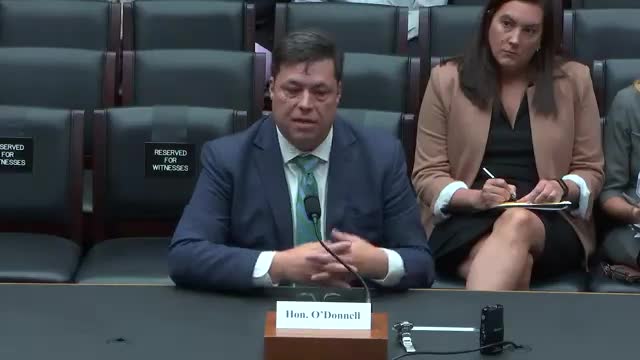EPA Faces Pressure to Combat Waste and Ensure Safe Water
September 18, 2024 | Energy and Commerce: House Committee, Standing Committees - House & Senate, Congressional Hearings Compilation
This article was created by AI summarizing key points discussed. AI makes mistakes, so for full details and context, please refer to the video of the full meeting. Please report any errors so we can fix them. Report an error »

During a recent government meeting, discussions centered on the Environmental Protection Agency's (EPA) internal culture and its efforts to combat waste, fraud, and abuse. A key focus was on the agency's whistleblower program, designed to encourage individuals to report misconduct. However, EPA leadership acknowledged that no whistleblowers have yet come forward to claim rewards for identifying issues, raising concerns about the effectiveness of the program.
A committee member emphasized the importance of transparency and accountability, particularly given the significant taxpayer funds allocated to the EPA. They requested that the committee be informed of any future whistleblower cases, highlighting the need to ensure that public resources are managed responsibly.
The conversation also touched on the broader challenges facing the nation’s drinking water infrastructure. Representative Sarbanes pointed out that aging and underfunded systems lead to frequent leaks and potential contamination, which not only threaten public health but also increase utility costs for families. He underscored the necessity of addressing these complex issues, likening the effort to a challenging but essential endeavor that requires commitment and resources.
Overall, the meeting underscored the EPA's ongoing struggle to foster a culture of accountability while addressing critical infrastructure challenges that impact public health and safety.
A committee member emphasized the importance of transparency and accountability, particularly given the significant taxpayer funds allocated to the EPA. They requested that the committee be informed of any future whistleblower cases, highlighting the need to ensure that public resources are managed responsibly.
The conversation also touched on the broader challenges facing the nation’s drinking water infrastructure. Representative Sarbanes pointed out that aging and underfunded systems lead to frequent leaks and potential contamination, which not only threaten public health but also increase utility costs for families. He underscored the necessity of addressing these complex issues, likening the effort to a challenging but essential endeavor that requires commitment and resources.
Overall, the meeting underscored the EPA's ongoing struggle to foster a culture of accountability while addressing critical infrastructure challenges that impact public health and safety.
View full meeting
This article is based on a recent meeting—watch the full video and explore the complete transcript for deeper insights into the discussion.
View full meeting